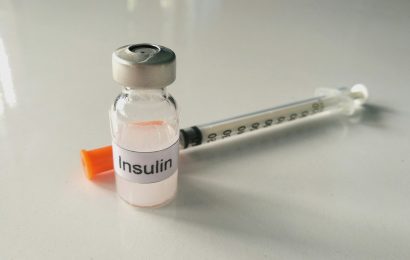There are so many types of diabetes medicines available that, chances are, you may not have heard about some of them. How do you know which medicine is best for you? As I mentioned in a previous posting, if healthy eating and physical activity aren’t enough to sufficiently keep your blood sugars and HbA1c within your target range, it’s time for you and your doctor to consider medication. Your doctor may very likely start you off with metformin, based on various clinical guidelines. But, as you can see, there are many other options. They may not all be right for you, based on how they work, side effects and cost. However, it’s important to ask questions of your doctor, especially if you’re taking a medication that isn’t doing a good enough job or is giving you unpleasant side effects. Be a partner with your diabetes team, because when it comes to your diabetes, it’s all about you!
What are alpha-glucosidase inhibitors?
Alpha-glucosidase inhibitors are a less popular class of medicines for type 2 diabetes. They work in your gastrointestinal tract to block your body’s ability to break down carbohydrate, thereby reducing the amount of glucose that enters the bloodstream.
You likely know that when you eat a food that contains carbohydrate, such as cereal or pasta, the carbohydrate in this food must be digested into glucose, which is then used to fuel the body. In order for this to happen, certain enzymes must kick in. These enzymes include alpha-amylase and alpha glucosidase. Alpha-glucosidase inhibitors block the action of these enzymes, reducing the rate of carb digestion and slowing the amount of glucose that enters the bloodstream. Alpha-glucosidase inhibitors are called antihyperglycemic agents, not hypoglycemic agents. This is because these drugs do not stimulate the pancreas to release insulin and they don’t cause hypoglycemia, or low blood sugar.
There are two drugs in this class of medicines: acarbose (brand name Precose) and miglitol (Glyset). When either of these medicines are taken with the first bite of food, they can lower post-meal blood sugar levels. For this reason, these drugs are best suited for people with type 2 diabetes who have significantly high post-meal blood sugar levels. While they can be prescribed on their own (as monotherapy), they tend to lower HbA1c levels by only about 0.5% to 0.8%; for this reason, they’re generally prescribed as a second or third agent.
How are alpha-glucosidase inhibitors taken?
These medicines come in pill form. They’re started at a low dose (usually 25 milligrams) to help minimize side effects. They must be taken with the first bite of the meal, and are taken with each meal of the day, up to three times a day. The dose is gradually increased, as needed.
What are the side effects of alpha-glucosidase inhibitors?
As you may have guessed, these medicines are likely to cause some gastrointestinal distress, especially when the drug is first started or when the dose is increased. The side effects include abdominal pain, flatulence and diarrhea. Generally, the side effects will disappear over time, but many people dislike taking these medicines because they find the side effects to be uncomfortable, inconvenient and/or embarrassing.
What else should you know about alpha-glucosidase inhibitors?
Low blood sugar can occur if you take one of these medicines with a hypoglycemic agent, such as a sulfonylurea or insulin.
Because of the action of alpha-glucosidase inhibitors, if you do have a low blood sugar, you should treat the low only with glucose (for example, glucose tabs) or milk, not other forms of sugar, such as regular soda or candy, as they won’t work to bring up your blood sugar.
If excess gas is an issue while taking this medicine, you may need a lower dose or you can try a lower-carbohydrate diet.
You should not take alpha-glucosidase inhibitors if you have inflammatory bowel disease, other digestive diseases or disorders, severe kidney disease or cirrhosis of the liver.
Let your doctor know if you’re planning a pregnancy or become pregnant while taking one of these medicines. They’re not suitable for women who are nursing or for children.
Make sure your doctor periodically checks your liver function tests.
Alpha-glucosidase inhibitors can block the action of certain medicines, such as digoxin (Lanoxin, Lanoxicap, Cardoxin, Digitek). Also, taking charcoal can block the action of alpha-glucosidase inhibitors. Check with your doctor or pharmacist about drug interactions.
Check your blood sugar two hours after your meals to see how this medicine is working for you.
Want to learn more about the role of medicines in treating diabetes? Read the rest of diabetes educator Amy Campbell’s eight-part series on diabetes drugs, covering metformin, sulfonylureas, meglitinides, DPP-4 inhibitors, SGLT2 inhibitors, thiazolidinediones, bile acid sequestrants and dopamine receptor agonists, non-insulin injectable diabetes medications, and insulin.





